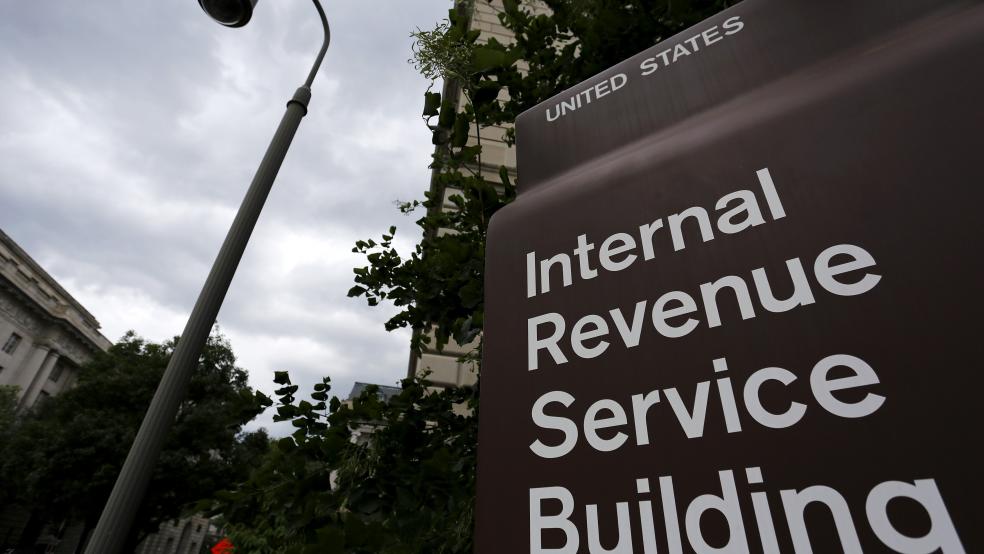The Treasury Department on Thursday released a “strategic operating plan” for the IRS that includes new details on how the tax agency will use $80 billion in extra funding over 10 years provided by Congress through the Inflation Reduction Act.
The 150-page plan, which identifies 190 key projects and more than 200 milestones for the tax agency as it seeks to rebuild and modernize following years of budget cuts, is built around five objectives:
1. Dramatically improving customer service;
2. Speedy resolution of taxpayer issues;
3. A focus on complex returns from high-income filers to reduce the tax gap;
4. Enhanced efficiency with up-to-date technology and analytics;
5. Maintaining a highly skilled workforce.
IRS Commissioner Danny Werfel said in a memo to Treasury Secretary Janet Yellen that the most important goal is to improve customer service. That objective includes providing more information to “help taxpayers identify potential mistakes before filing and quickly fix errors that delay their refunds.”
The largest share of the $80 billion in extra funding, though, will be used to target wealthy scofflaws who intentionally avoid paying their taxes in part or in whole. “We will focus [Inflation Reduction Act] enforcement resources on hiring the accountants, attorneys, and data scientists needed to pursue high-income and high-wealth individuals, complex partnerships, and large corporations that are not paying the taxes they owe,” Werfel said.
The new commissioner also vowed to adhere to Yellen’s stated goal of focusing its enforcement efforts on the rich and not middle-income households. “All efforts will comply with your directive not to use [Inflation Reduction Act] resources to raise audit rates on small businesses and households making under $400,000 per year, relative to historic levels,” Werfel said. “Our efforts outlined in the Plan to provide better service to taxpayers, help them file accurately and resolve issues at filing, coupled with technology and data advances, will allow us to focus enforcement on taxpayers trying to avoid taxes, rather than taxpayers trying to pay what they owe.”
In a phone call with reporters, Werfel underlined the theme. “People who get W-2s or Social Security payments, or have a small business, should not be worried about some new wave of IRS audits. We’re taking that off the table,” he said. “We have years of work ahead of us, where we will be 100 percent focused on building capacity for higher-income individuals and corporations.”
The need to rebuild: Werfel said the IRS clearly needs the funding Congress has provided. "I can’t overstate the importance of sustained annual resources for IRS operating costs," he wrote. “To help put this issue in perspective, IRS funding has steadily declined over the last decade causing suboptimal staffing and investment.” Werfel noted that in 2010, the IRS had more than 95,000 workers serving a U.S. population of 310 million, whereas today, the IRS is about 20% smaller while serving a population that is 7% larger – and the tax code has grown more complex in the meantime.
In a nod to threats from Republicans to eliminate almost all of the $80 billion provided to the IRS by the Inflation Reduction Act – which GOP lawmakers have claimed would be used to hire an “army of 87,000 IRS agents” to harass middle-income taxpayers, as House Speaker Kevin McCarthy (R-CA) put it – Werfel warned that any cuts to funding would damage the agency’s effort to improve customer service and likely result in less revenue being collected, increasing deficits.
As far as hiring is concerned, the report does not specify an estimate or target for the number of hires the IRS plans to make. The 87,000 figure derives from a 2021 Treasury report that estimated the IRS could hire 86,852 full-time employees over the course of a decade with a nearly $80 billion investment – not solely enforcement agents. Many of those hires would simply replace the estimated 52,000 IRS employees expected to retire in the coming years. Werfel said Thursday that the share of IRS employees working on criminal investigations would not change.
Extra funding having an effect: The IRS received a budgetary boost from the Inflation Reduction Act this year, and agency officials say the effects are already evident following its hiring of 5,000 new customer service agents.
“People can see the first signs of change this filing season following this infusion of funding,” Werfel said. “Taxpayers and tax professionals can see the difference as we have dramatically improved our phone service thanks to more staff. More walk-in services are available across the country. New digital tools have been added. And these are just first steps.”


